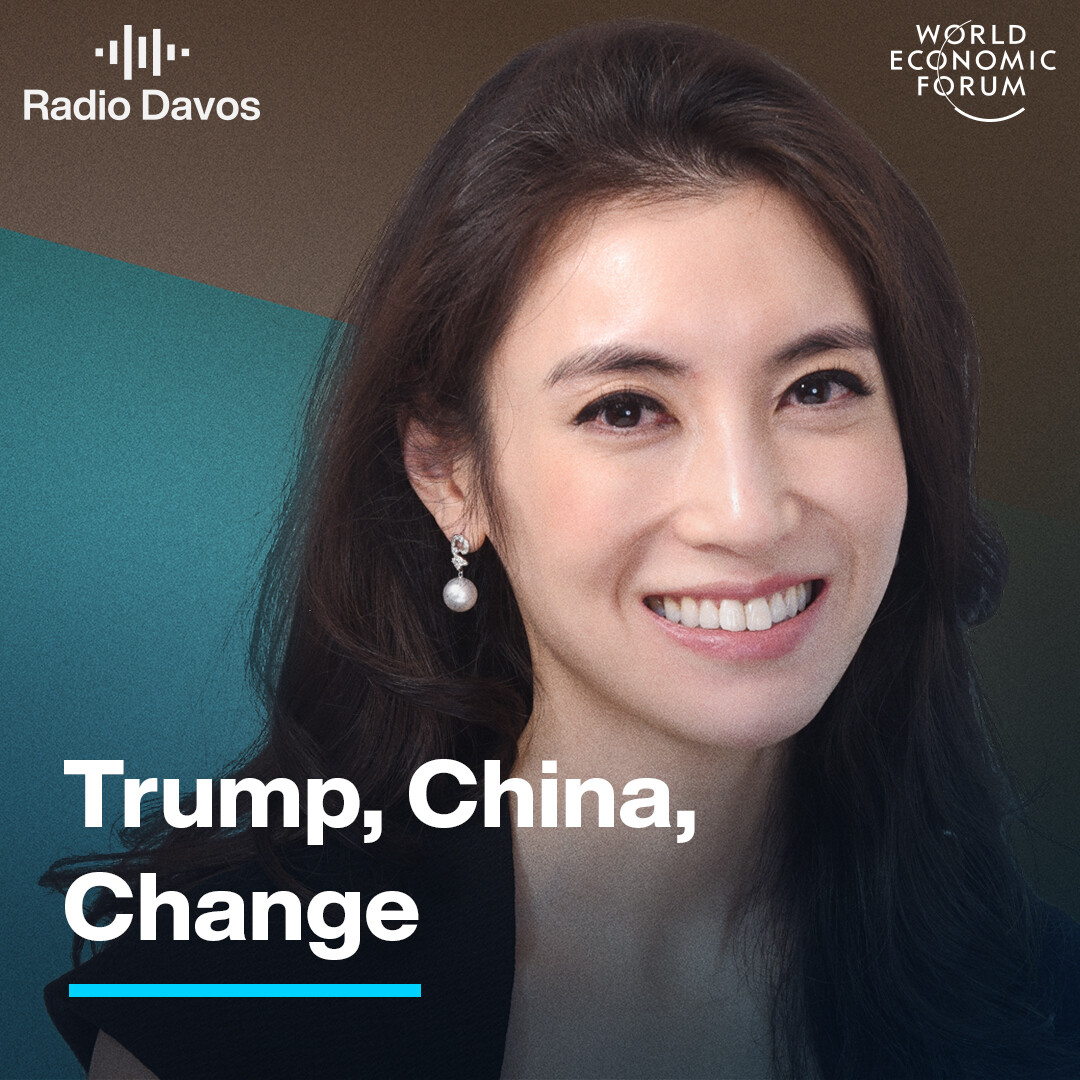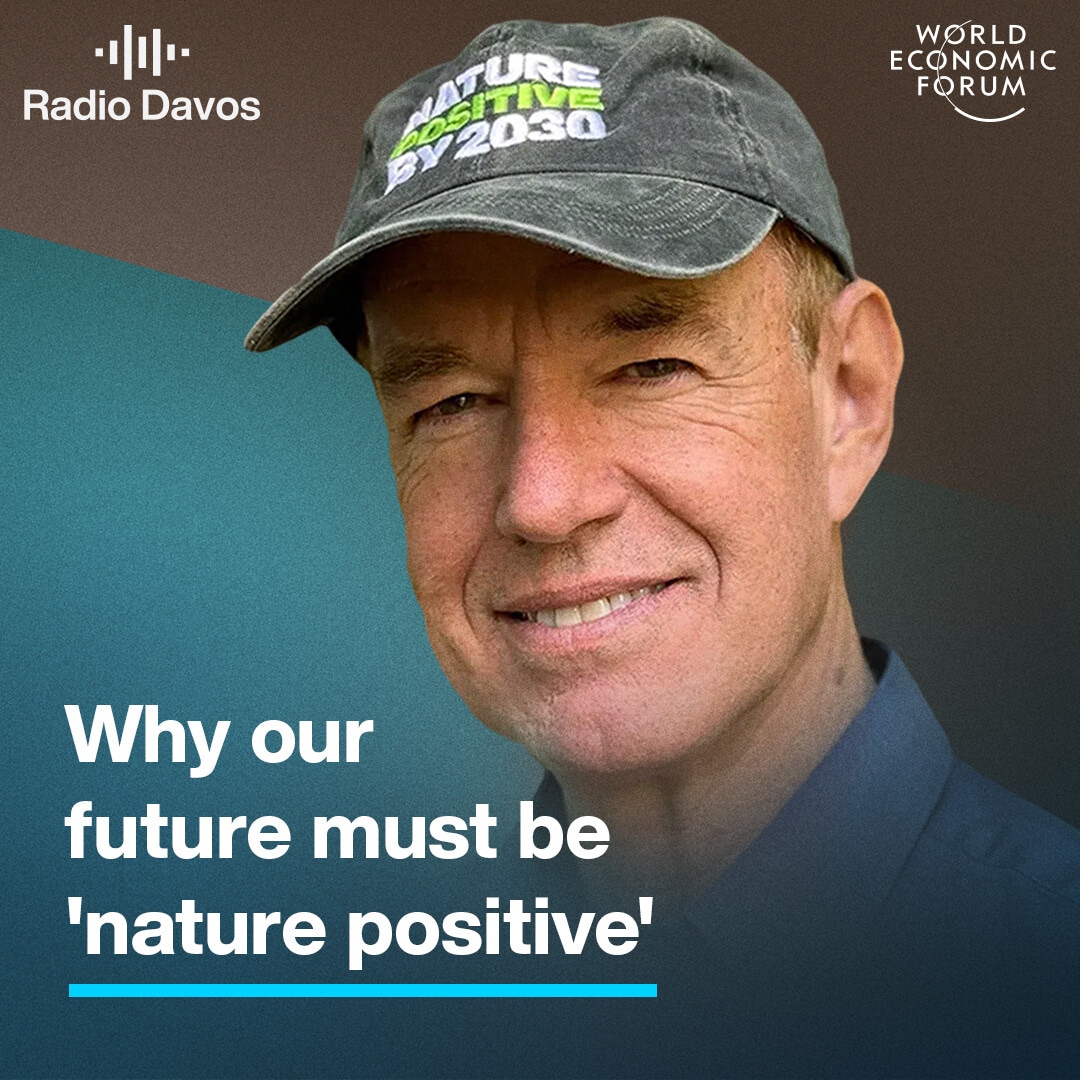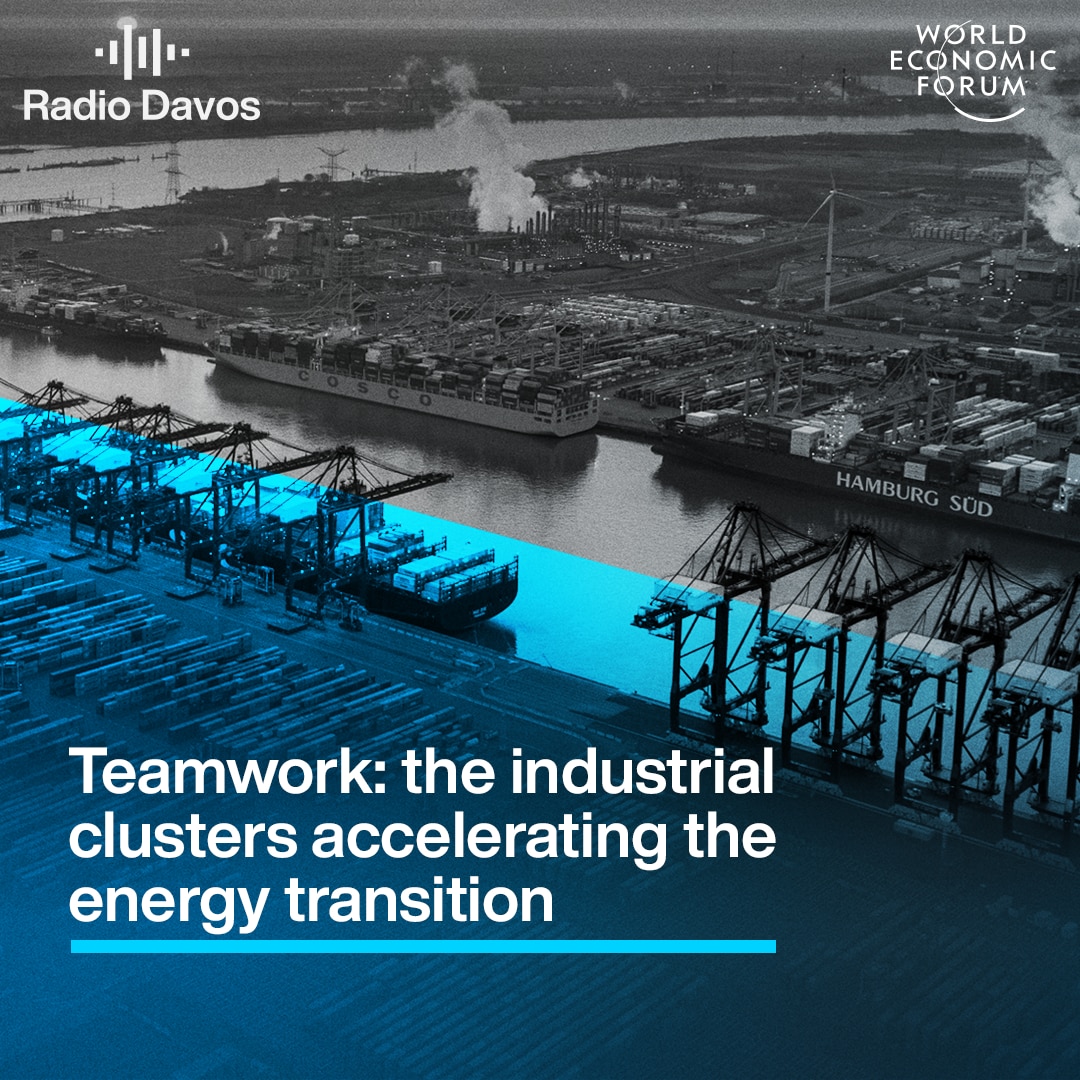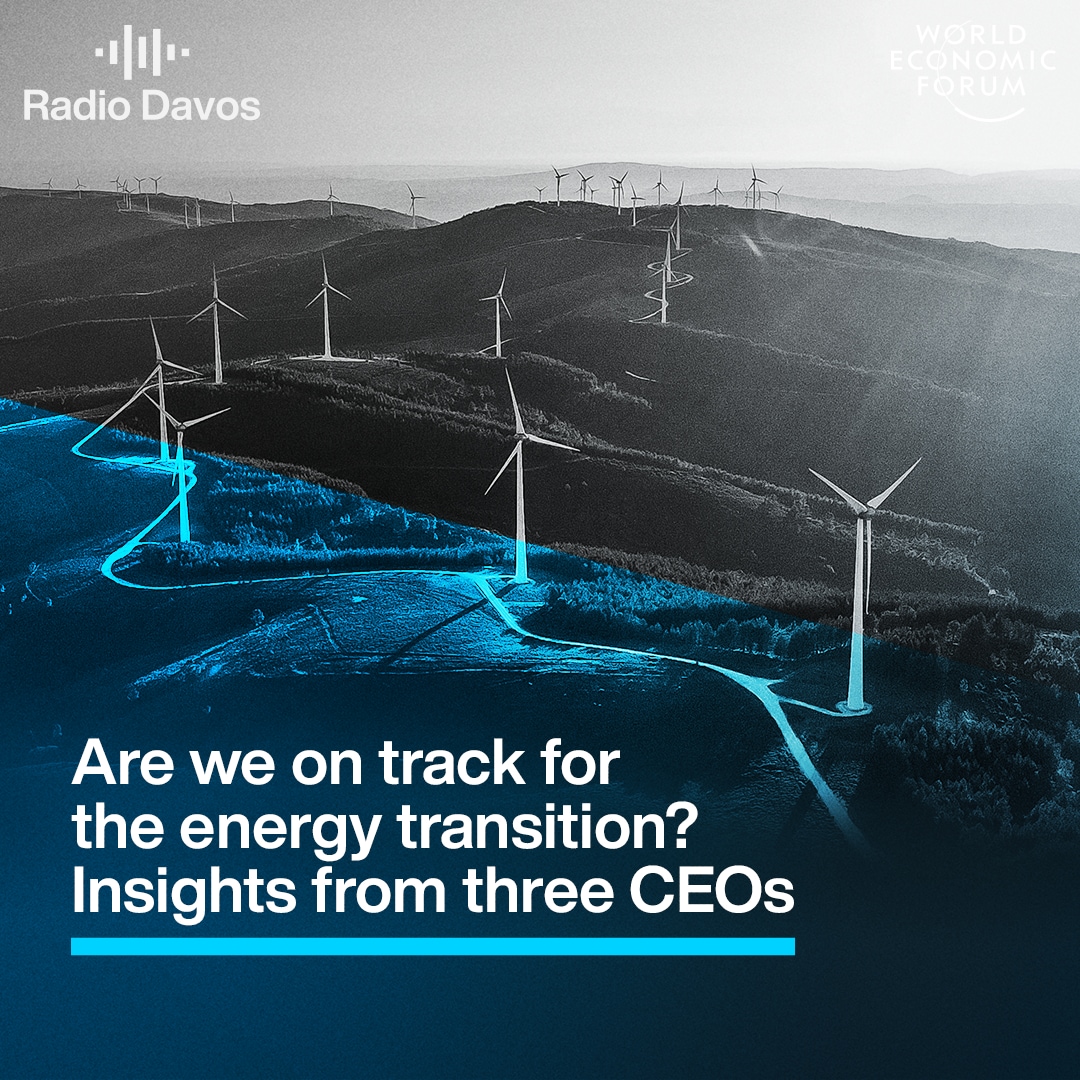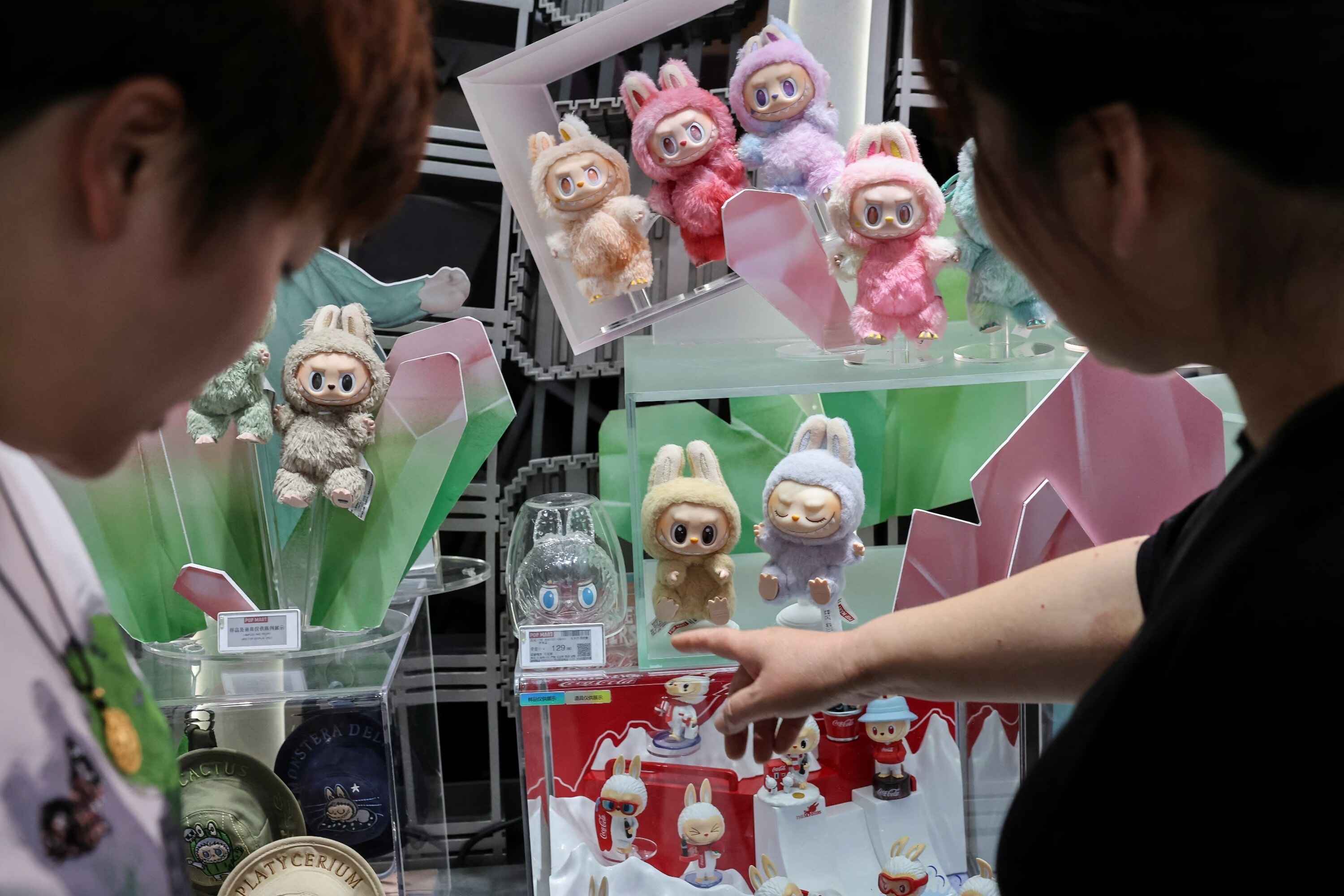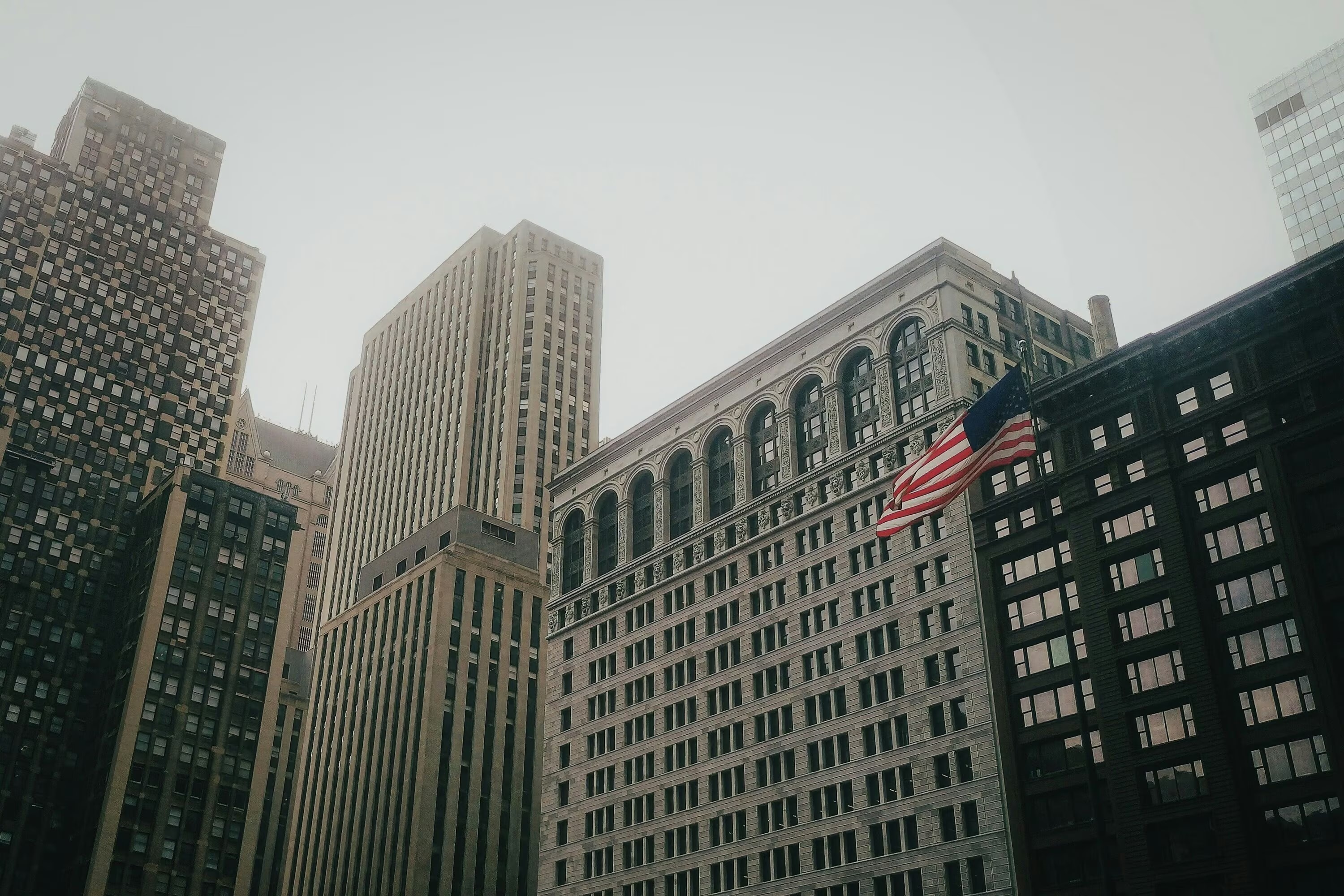"New era, new mood, new challenges" - historian Adam Tooze on why things will never be the same again
Scroll down for full podcast transcript - click the ‘Show more’ arrow
Historian and podcaster Adam Tooze says we are at a turning point in history - as the Trump administration upends decades of assumptions on geopolitics, trade and the economy. Coinciding with the dawn of artificial intelligence, the rise of China, and demographic shifts are adding to transformative changes for us all.
CNBC anchor Chery Kang joins us in the studio at AMNC25 to co-host the episode.
Related episodes:
Guests:
播客文字稿
This transcript has been generated using speech recognition software and may contain errors. Please check its accuracy against the audio.
Robin Pomeroy, host, Radio Davos: Welcome to radio Davos a podcast from the World Economic Forum that looks at the biggest challenges and how we might solve them.
Adam Tooze, Director, European Institute, Columbia University, USA: Hi, my name's Alan Tooze. I teach history at Columbia University.
Robin Pomeroy: Is there any way you could say 2025 and where we are right now is a turning point in history in any way?
Adam Tooze: I would say definitely: new era, new mood, new challenges, and it ranks. It's not just trivially new, as in everything's new, but actually genuinely a break with precedent.
Chery Kang, anchor CNBC and guest co-host, Radio Davos: What is the new sort of world order that we're going to live in here?
Adam Tooze: So I think this is a critical question. And my sense is that there's another phase we should put into our storyline here.
Robin Pomeroy: Everyone's talking about artificial intelligence. Do you think this is a massively historical moment?
Adam Tooze: I think this is a technology which is, if you like, born contested. It's born into the new geography of geopolitics. The iPhone clearly wasn't.
That's a turning point in our collective history.
Robin Pomeroy: This week, we're recording at the Annual Meeting of the New Champions, or AMNC, the Forum's Summer Davos, where leaders from business, government, academia, civil society are meeting here in Tianjin, China to discuss some of the biggest issues facing the planet.
And I'm delighted to say joining me on this episode is a co-host, CNBC correspondent and anchor Chery Kang. Hi Chery, how are you?
Chery Kang: I'm doing great. Thank you so much for having me on your podcast. And it's really my first podcast experience. So just be gentle. But yes, great to be on. And a lot is changing, a lot to talk about.
Robin Pomeroy: There's so much to talk about. Before we get to our very special guest, tell us what you do at CNBC.
Chery Kang: So I am correspondent and anchor at the CNBC International. So I co-host Squawk Box Asia, our flagship channel, three-hour programming. And it's really just setting the agenda for our viewers on what's going on around the world, and of course, with a focus on business.
Robin Pomeroy: Well, what's going on around the world is what we're going to discuss. What else?
You've joined me because in the room with us, we have a very special guest. Adam Tooze is a historian, author, podcaster. His most recent book, I believe, you'll correct me if I'm wrong, is called Shut Down, How Covid Shook the World Economy. And his podcast, a favourite of mine, Ones and Tooze, is a weekly dive into the big issues that face the world. That's what we going to talk about now.
Adam Tooze, how are you?
Adam Tooze: I'm good.
Robin Pomeroy: Thanks so much for joining us, let's dive straight in.
You're a historian and I really want to hear your view on where you see the world right now. Everyone thinks they're living through a moment of history if they think about it. Is there any way you could say 2025 and where we are right now is a turning point in history in any way?
Adam Tooze: Well I mean the obvious place to go with that would be the presidency of the United States at the current moment.
I mean even in the few days that we've been here it's been a kind of torrent of news that we struggle to assemble coherently into an account of the world: ceasefire or not; America enters into a war with Iran or not.
This is unprecedented in the way in which policy is being made, unmade, remade on the hoof, apparently on the whim, in what used to count as the centre of power, order, stability.
There's an awful lot of talk at Davos this year, as in many years previously, this is Davos in the summer in China, about the question of world order and what we do after its end in its current form.
So in that respect, though, yes, I take your point that all moments are historical, and I did hear Tony Blair, former Prime Minister of Britain, say he'd never been to a Davos in which people hadn't declared that this was the most, you know, momentous moment in history.
I think if we sit back and look at what's come out of Washington and what are the first, what, five months of the Trump presidency? Graham Allison was saying we're like one-tenth through. This is a pace of news making, to put it at the most superficial level, of noise, if you like, in the political system, of rupture, disruption. We haven't ever seen anything like this before.
The previous American-centred system relied on a certain measured pace of policy-making. The Biden administration was much more typical. And so to have this abrupt shift even disrupts the expectations we had from Trump 1. So that, I think, in that respect, you can say it's a new challenge.
For the Chinese leadership, and that's the palpable feeling you have here right now, they were prepping at the previous Davos in the summer, they were preparing for a potential Trump presidency, another Trump presidency. And the mood you have here is that they feel they won the Trump transition. They got it right. They understood there would be major challenges. They prepped a stimulus. They responded. The Chinese economy is growing reasonably quickly. It appears to have recovered from the real shocks of 2021 and 2022.
And for Beijing to be formulating its situation in those terms is also a sign of novelty. For China's central problem to be to prep for the eventuality of one scenario in an American democratic election, that hasn't been the norm of meetings here or anywhere else in terms of economic policy.
So yes, I would say definitely: new era, new mood, new challenges, and it ranks. It's not just trivially new, as in everything's new, but actually genuinely a break with precedent.
Robin Pomeroy: Interesting what you say talking to people here, the Chinese think they got it right, they prepared for this, and there were huge shocks on trade policy. I wonder, Chery, you've been talking to people, hosting panels. Are you getting that sense as well? Because it could have been 'oh my god, what's going on?' What Adam seems to be saying is 'We're managing okay this very unpredictable scenario'.
Chery Kang: And the very initial question that people were asking right after the Rose Garden tariff announcement was, oh, which country is in a better position economically? Is China ready for this?
And I think you said it right, that China is sort of better prepped for this kind of moment. It didn't start on April 2 with the Rose Garden tariff announcement. It's been brewing. And, of course, the first Trump administration has sort of prepped Beijing to see what's coming.
And I'm going to just go back to Adam, and this is going to be my next question, that people see this as something structural, obviously. And it has been brewing for many, many years. But I wonder, what is the new sort of world order that we're going to live in here? Because sure, the US wants to reduce the trade deficit or wants to sort of contain China's influence and compete better with China.
But what comes out of that at the end of this tunnel? Are we going to have G2 and then sort of sucking in the rest of the world into their own universe and sort of bipolarized world?
Adam Tooze: So I think this is a critical question.
And my sense is that there's another phase we should put into our storyline here, which is there was Trump 1, which ended, we should remember, with the phase 1 trade deal. Early 2020, both Beijing and Washington are celebrating the deal that they've done. Then COVID comes along and disrupts everything.
And there was, I think, a huge question mark in Beijing, as in the rest of the world. Does America normalise? And from the point of view of Europe, America absolutely normalises. It's the great relief that, as it were, we're back to transatlanticism. And given the crisis in Ukraine, this is all the more welcome.
But Beijing waited, and it waited, and it waited, and didn't get normalisation. There was no pullback on the tariffs. There was no pullback of the tech sanctions. In fact, they escalated, not on the tariff side, but on the tech-sanction side.
And so I think from China's point of view, their options last year were pretty clear-cut, like Plan A is the Democrats come back in and it's more of that kind of escalation, which was very targeted, highly rationalistic, organised around ideas like small yard, high fence. We're going to kind of figure out ways in which America can preserve dominance in key areas, but otherwise allow free trade.
Or, Plan B, it's Trump. And in that case, we need to have the domestic stimulus package. And I think that's how Beijing set this up.
The implication of this, I'm afraid, is that the G2 vision is now off the table. Like, I think the last time G2 was reasonable was Sunnylands, which was 10 years ago, or 12 years ago now, the negotiations between Xi and Obama, the early phase of Xi's term in office, where there really did seem to be this idea that Chinese were mooting this idea of a new model of great power relations. That was the moment where I think G2 could really have consolidated. And the Paris climate agreement, you can see, will be the fruit of that. Chinese-American leadership leading the world towards a kind of consensus around global challenges.
And if there's one thing that's clear 10 years on from 2015, it's that that paradigm is dead. That is not coming back. America, at that level, as a kind of co-partner in global management, has I'm afraid, just simply lost credibility.
The Biden offer was not that. The Biden offer was a American-centred alliance or democracies versus autocracies, they dressed this up in lots of different ways. But that model's a bust because of Trump.
And the fundamental fact is the American electorate voted for Trump once. You could say it was an accident. They voted for him twice. It was no accident. This was a clear cut decision with resounding majorities. And man, have they acted on that mandate. They really have gone about dismantling structures, and cultures, and assumptions, both at home and abroad.
So to my mind, G2 is off the table at this point. And so the future looks like configurations of ordering and stabilising around players which are more predictable than the US. That could be the Europeans. It could, God help us, it could be Russians. It could be China. It could be various types of rather pragmatic deal in Latin America. That's where I would expect to see the action.
I really do think that we have to register the fact that America as a partner, I mean, the consensus at this meeting, even amongst the Americans here, is that they don't know where you go in Washington if you want to get a straight answer about what trade policy is and what the terms of any deal are.
And that, I'm afraid, is the reality. We see it on America's TV screens, on CNBC, on any other channel like that. Every single day you get an official from the Trump administration in front of your cameras and they will speak coherently for 20 seconds and then their story begins to break down. And this place here doesn't have a lot of patience for that.
Robin Pomeroy: This place being China.
Adam Tooze: This place here at the conference and Davos and the groups of senior business leaders from all over the world who have to make longer-term investment decisions and need to know whether tariffs are a long-term policy strategy, whether they're a means of doing a deal, whether they're about national security, they need clarity, and they can cope with practically any parameters as long as they have clarity about them.
The problem right now is there's no clarity.
Robin Pomeroy: I suppose the Trump administration would say, this is our strategy, it's confuse you, catch you off guard, tariffs at this amount, you'll come back and negotiate with us. I mean, there's a certain logic to that, isn't there?
Adam Tooze: It's a brute force logic. It's kind of canny, playground bully kind of logic. It isn't going to carry you very far, and it will come at a price.
And what we're going to see, I think, and this is the thing to look out for, is the postponement of investment decisions. And that's the macroeconomic story going forward. What do we expect America's growth rate to be under this regime?
Remember, we came into this year high on the American exceptionalism narrative. And that was going to take a hit from DeepSeek when that came along anyway. But now it's in tatters. Right? The American exceptionalism now is who is where. That doesn't mean the markets won't bounce back. The American markets will bounce back because they simply are driven by various types of sentiment logic. But the deep fundamental preoccupation, the idea that America is actually an exceptionally well-run macroeconomic regime in which investors can feel very confident about their interests being central to decision-making, who in their right mind would believe that anymore is a story about the US?
Chery Kang: It's sort of like a combo of maximum pressure and strategic ambiguity that the Trump administration is going for, isn't it?
And just to answer your earlier question, Robin, that I think the world is very divided. The street is very divided in terms of understanding how China is equipped better or not in this episode of a trade war, because there is clearly different narrative playing out. And I wonder if it comes from the fact that misunderstanding or lack of understanding in the Western world about what's going on in China, maybe that is leading to this kind of sort of miscalculation. Do you agree with that, Adam?
Adam Tooze: I mean, at some level, one has to agree with you. I do think there are people who are devoutly convinced in Washington that America has the stronger hand here. And it's just a matter of why. I totally agree with your characterisation. Some combination of maximum pressure, that's the language you used to use for sanctioning Iran, by the way, and strategic ambiguity, which used to be a means of calming Cold War pressure. And instead, we're using both in an escalated fashion against the second largest piece, by some measures the first largest piece, of the world economy. This is really drastic stuff.
So I think that is a key element of just destabilisation.
Whether or not, I can't decide whether America misunderstands China or can't face the truth, which is not quite the same thing.
And I, deep down, my fundamental diagnosis is a little bit like shrinky, psychotherapeutic, is that we're misunderstanding because we can't place the truth. And the truth we can face is two basic facts about which again mark this moment as radically new.
Which is on the one hand, China has emerged as the dominant manufacturing power in the world bar none. It can produce practically everything at high quality and at low cost and totally dominates virtually any sector it chooses to direct resources to. Not every single one, but certainly in the manufacturing space it has a huge and commanding position. Its economy is still growing more rapidly than any economy in the West, and it's governed solidly, securely, and self-confidently governed by a communist party.
And those two things together are incredibly difficult for the US to face. It would be hard to face if it was a small country. It's 1.4 billion people. Moving at an incredible pace, having achieved generational transformative growth.
And I actually just don't think Western politics, Western society, can cope with this fact. It's an economic shock. It's a cultural shock in the sense that we suddenly realise how marginal the West is to larger civilizational history. And it's a profound political shock because we were convinced that we'd won the Cold War. And then we're reminded, in rather abrupt terms, that in no single conflict in Asia did the Western side actually prevail, not in Korea, not in Vietnam, and clearly not with regard to China.
And processing that is, it's not even an accusation I would make, I find it highly understandable. I think it's the challenge of intellectuals and public speakers in the West in the current moment to work at this problem, because it is transformative. It's earth-shaking. It reorientates our world.
And that's, I think, the problem. And so this other, the misunderstanding, the sort of baseline assumption that in the end, like Hegseth said, you don't understand, we're the top dog, you follow what we do. That's the banal, ridiculous expression of this deeper problem.
Robin Pomeroy: I did a podcast in the leadup to this called, the headline was What the West Gets Wrong or Misunderstands About China. I also did an episode after Davos in What Does the World Misunderstand About the US? During Davos, in Davos in Switzerland, that was the week of Trump 2.0 starting and so we interviewed people actually very sympathetic to the new administration. And I think a lot of things we knew we could take for granted, like the tariffs, for example, not entirely sure how they were going to be implemented, but everyone knew something was going to happen.
The one policy that was not clear was American foreign policy. Was it going to isolationist? Or was it going to be interventionist in a way that the Republican Party used to be, if you think about the Iraq wars and so on? And the people we interviewed there said, we don't know that yet because there's this tension within the MAGA movement, within the Republican party.
What we've seen in recent days as we record this, and who knows what might have happened by the time we put this out...
Chery Kang: We should tell our listeners the date.
Robin Pomeroy: Yes. It's the 25th of June, 2025.
Iran: there was, we saw it played out in the media, this pressure of, no, America first, this is someone else's war, this Israel's war. And in the end, America did intervene.
Do you think that has decided, do we know who's won this argument yet within the administration or the Republican Party?
Adam Tooze: I mean, I don't think we should underestimate the line that was crossed. I mean part of the problem in thinking about this is we've been talking about the possibility of America bombing Iran for virtually as long as I can remember. Well, it's happened, I think, probably my entire politically conscious life since the 1980s. And now it's finally happened. And I don't think we shouldn't underestimate the shock that that entails.
But am I convinced that anyone around Trump actually understands the historical significance of what they've done? No. I'm actually fairly convinced they don't understand the historical significance of what they've done because they think they've severed the muscle memory, the deep understanding of long-term American strategy that was still very present in the Biden administration.
Think about the way in which the senior military command drew the line on the no-fly zone on Ukraine. They weren't going anywhere near it because they knew rules from the Cold War. We do not put US troops up against Russian troops in any theatre, full stop, end of story, whatever may be demanded.
I don't think those basic safety catches, which is, you know what, we've gamed out the bombing Iran thing for several decades, and every single time predecessors have decided we're not going to do it, I'm not going to be the person that pulls the trigger. I think that's gone.
And so the question is, does this hugely significant thing that's happened, but did the people who did it know what they've done? It's a kind of banality of violence. It's as though some thug-ish teenager destroys a Ming vase and just says, well, it's just a vase. How do you qualify that crime? It's just the vase, on the one hand, to the teenager, but actually, it is a precious, priceless object.
And that's the kind of way that history's being made right now, the threat of 140% tariffs on China. It's historic. What are we supposed to do as historians? I'm going to put that in a history of American trade policy and I'm basically going to have to conclude it was back of the envelope, you know, toilet moment nonsense that suddenly manifested as policy.
And I think again and again and again this is our difficulty interpreting the Trump administration is do they know what they're doing?
And so to answer your question I think we still don't know. I actually think it's quite possible the president believes that bombing people with massive, I think they used the huge 13-tonne bombs, is just a bargaining tactic. It's what you do when you really want to force them to talk to you. And if you don't do that, you're not hard, and he wants to be hard, so he needs to be serious.
And does this actually express a position? He's not putting boots on the ground after all. You're just flying heavy bombers in, dropping bombs and flying out again. The Iranians can't touch you.
Like, it may not even appear to him that he's done what he's done, which is de facto declare war on another state. Of course, he hasn't declared war. If he did declare war he'd actually be in violation of the Constitution because he'd need some powers to do that, which he doesn't have.
So we're in this space. I mean, I'm speaking also as a person who teaches at Columbia University. We're in a space where things are being done to institutions and cultures that were considered to be significant that don't have a basis in law? That nevertheless have massive impact and it's not clear whether the people doing them actually understand what they're doing.
Robin Pomeroy: These are vigorous and well-argued arguments against the Trump administration. I'll play a little bit of devil's advocate here and say, yeah, the bombing by the US of Iran that talked about for decades, not done. But wouldn't another administration also have been tempted to do it right now when you do have a weakening of all of Iran's proxies around there, Hamas, Hezbollah, Assad in Syria? If you're of a mind to do it, which America always has been, as you've said, it's always been thought about by everyone across the political spectrum, almost, now's the moment, isn't it? It kind of makes, it not just back of a cigarette packet calculation, maybe it's actually a strategically good idea.
Adam Tooze: I don't think that's an unreasonable interpretation, except we do have to emphasise that the driver of this escalation is Netanyahu.
Netanyah's vision of Israel is what's driving this. And I would say that this is where the Biden administration really fell down. They did a decent job of moderating tension over Ukraine. They walked relations with China to the edge over the balloon incident, and then walked strongly back as they realised how dangerous that was becoming. No such restraint was shown with regard to Israel, and to that extent, I would agree with you. They are now, as it were, reaping, you could say, the rewards of that strategy of escalation, essentially giving the Israelis a green light to continue this process. And yes, as you say, systematically bulldozing aside, first Hamas, then Hezbollah, then regime change in Syria. So what's not to like about this moment? Why not go ahead?
But it is not ultimately a strategy being set, I think, in Washington. It's a series of opportunities created by America's proxy. But it's a proxy gone rogue. And the real question is, would the Biden administration, I think, be more successful in restraining them? Would they have wanted to?
I do find it impossible to suggest that the Biden administration would have gone for the bomb on Iran. I just find that difficult. I followed very closely their thinking about direct use of force. I thought they were very calculated through a sense also of history and a deep sense of the quality to significance of actually moving to that step.
So for America to go in in that way, I think, would have been quite surprising. I don't rule it out. I see the logic of what you're saying. But it's an instance of a kind of coupled strategy that's running, not maybe away from you, but in an aggressive way where the pace is being set by somebody else.
Chery Kang: How much of this do you think has to do with the Trump administration wanting to address the 'TACO' trade that's still playing out on Wall Street? 'Trump Always Chickens Out'. He wants to address that. And with this Iran decision, perhaps the Trump administration can tackle a lot of things, sends its message to not just to Iran, but perhaps to China and perhaps the rest of the world who has to deal with this still high level of the tariffs.
Adam Tooze: I mean, I like this argument. Perhaps you could take it to that level. That would be to go the opposite way. That's even more, if you like, trivialising the Trump administration. It was wounded ego on Trump's part, the demand that he take strong action.
Another way of standing back from this would be see everything that's happened in the last four to six weeks as organised around the big beautiful bill. The real issue is can they summon up a congressional majority for that signature legislation? And I was extremely worried about the escalation from the LA protests and rioting and police rioting through to Trump's beautiful birthday parade and no kings and I thought that would be a vehicle that would be used to create the kind of escalating sense of tension. We saw how Stephen Miller and people like that were spinning, the BBB, it is the big beautiful bill. They were spinning that as an answer to the civilizational threat of migration.
I think they were looking, I agree with you entirely, they were looking for a way to demonstrate seriousness of purpose, and this may have served that purpose. So there's a kind of enchainment there of domestic constraints, domestic concerns with foreign policy that's quite real.
I think he was probably genuinely mortified by the lack of turnout for the military parade. So that might also have played into this story.
But the fact that we're having these conversations at all is a sign of just how ridiculous the situation is. We genuinely don't know. None of us here is confident in pinning down how serious this was.
To go back to your original question, do we know what kind of administration this is? I still think it's not an administration that wants to put boots on the ground. But then that was true of Obama already. It was true of Biden. I don't think that's that novel. An occasional bombing run against an enemy like Iran in collaboration with Israel, I'm not sure that that really constitutes stepping over the line. It depends a little bit on whether Iran chooses to escalate as much as it might, how deep this gets. But what we're seeing from Tehran so far anyway is relative restraint.
Robin Pomeroy: I'd like to steer the conversation slightly away from geopolitics, which absolutely has been on people's minds.
Chery Kang: No please don't.
Robin Pomeroy: I think it will come back to it though, because are there other ways that this might be seen as a pivotal moment in history?
And what occurs to me, the last two or three years, whenever there's a meeting like this, whenever there is a podcast like this, everyone's talking about artificial intelligence. You know, we had DeepSeek in the last few months. So it's become a key issue again with China, maybe again with the China versus America, so, if you'd like, we can come back to the geopolitics.
But I'm just wondering, Adam, how do you see this sudden wave in AI compared to other things that have happened through history? I've seen it compared to the printing press, you know. Some of these things. Very interesting, maybe not entirely convincing, or the internet, for example, maybe closer. Do you think this is a massively historical moment, and not just this year, but maybe this decade, and what are the historical precedents, if there are any?
Adam Tooze: The ones you mentioned are useful. Personally, I think of it as an innovation within the internet system. No internet, no DeepSeek, no ChatGPT. You need that. You need that universe of digital existence to be able to use it effectively. As we all know very well, being at the Chinese conference, you need to have that online-ness to constitute it. So I think it's been an innovation within the ongoing digitalisation and internet transformation of our lives.
As somebody who's in the business of symbol manipulation, of writing, of teaching, of reading, It's, no doubt, a transformative technology. And I embrace it, to be absolutely honest. I consider my role as a teacher now, in large part, to be to train people to handle this technology effectively. Because it intrudes directly into what we do. And so, to my mind, it has to be seen as working at that level and as something that we have to work with consistently.
So I kind of place it in that bucket. I'm not going to deny that if we keep developing it at the rate that we are, we end up may be some truly transformative general intelligence. Which would change the game in a way that we're not currently talking about. But how that would be inserted into the kind of messy reality we started talking about, it's very difficult to kind of read through the jumble.
One of the things it has definitely done is contributed to the zero-sum competitive quality of rivalry around tech.
I mean, if you think about the way that started, with general concerns about technology that go all the way back to the Cold War, then the escalation of sanctions against Huawei after Trump won, the continuation and the widening of that under Biden. At the end of Trump 1, there was already a series of focused reports looking at the way in which AI was going to be strategic for great power rivalry.
I think this is a technology which is, if you like, born contested. It's born into the new geography of geopolitics. The iPhone clearly wasn't. The iPhone was born into the happy world of globalisation. It's this marvel of Californian technology and Chinese production, and everyone uses it or it's analogue. So they all come out of that system.
The slightly sad thing about AI as we've seen it so far anyway in its early iterations is it's directly tied up with with the logics of, well, it's Eric Schmidt, I think, the chair of the report for the late Trump administration and set the course towards this sort of deep, native interpretation of AI as inherently national security relevant. And to that extent, there's also a sense in which this is a new era.
Robin Pomeroy: We did come back to geopolitics, Chery.
Chery Kang: I know, I mean, I knew it was going to happen, so I was okay with that. But we talked about the conflict between Israel and Iran, the war in, Russia's war in Ukraine.
Perhaps there is another war going on. It's just a different form, it's quieter, it doesn't involve missiles and drones, but you mentioned the digitization and artificial intelligence, maybe trying to influence people on the internet, through social media, maybe there is a war going on and I wonder if that's just really the quiet war that we're just going to have to keep living with, Adam?
Adam Tooze: I mean, I think there's a struggle going on.
People who are engaged in the bloody process of fighting and surviving in war articulate themselves into that digital space. And in that space, there is undoubtedly a struggle going on.
One has to say the leading protagonists of that are businesses, which are struggling for our eyeballs, trying to get our attention. And they do that in this weird way of kind of waging war on your better angels. So they find the weak spots in your personality, and they're like ping, ping, ping, whatever it is your weak spot is, they go for that. I feel like I'm struggling inside myself every day against my addiction to cute dog videos. Like, that's the war I have to fight to stay focused on geopolitics. I'm not terribly keen on the gore videos, so it doesn't feed me them. But the AI, the algo, will endlessly feed me dog sentimentality.
So there is a struggle, I can completely agree. We have to think of knowledge and technology as rooted in power. That's the fundamental point here. That can take lots of different manifestations. And some of them are more violent, extreme, corporal. They tear our bodies apart. And others are struggling for control over our minds.
And it's very interesting to be in the Chinese social media space behind the great firewall to see how actively that struggle goes on. This is not North Korea, this is not the GDR. This is a space in which the struggle for Chinese eyeballs is fought as intensely as anywhere else in the world. There's a relatively small amount of political propaganda in it, but there's a huge amount of mixed corporate political messaging that drives the most dynamic internet ecosystem in the world, which is right here in this country. This is 1.4 billion users almost permanently online, assuming everything's online, you can't function here without a cell phone that's well-charged and has got WeChat on it. You literally can't. The most effective sanction of the Chinese regime against anyone in China right now is to cut off their WeChat account. At that point, you might as well, it's Orwellian, you may as well be a non-person.
Robin Pomeroy: We're getting towards the end of the time we have available, I'm going to ask you, Adam, now I've got a choice here, I could ask you one question or two.
Adam Tooze: It's got to be about dog videos.
Robin Pomeroy: I'll ask you that afterwards. I'm going to ask you the two questions. My one question would be what have we got to be optimistic about? So I'll let you be thinking on that while I ask you the first one, which is: what keeps you up with worry at night when you wake up, if you ever do, in a cold sweat in the middle of the night? What is the thing that worries you? But don't spend too long on that please because I I really want to hear the optimistics.
Adam Tooze: I mean, I'm an ecosystem kind of guy. So I really do think we underestimate the risk of another pandemic. I really think that is like this mega risk that we experienced one time over, and, like goldfish, we swam on right by, now everything's back to normal.
But that's the thing which totally shook up relations between China and the West. Everyone stopped travelling and it still hasn't come back, right? And you could extend that, I would think of that as part of the general diagnosis of ecological destabilisation. That's where the mutation is coming from. Even if it was a lab leak, it was still part of a programme of biological manipulation that went terribly wrong.
So I am a big climate worrier, I won't deny that. I know it's no longer fashionable or the centre of attention, but the ongoing climate crisis in places across, really it's not Western Europe or America, it's MENA, it is Asia. That's the thing that worries me.
The good news, the optimism, is the flip side of the China shock. Like what is it we were shocked by? We were shocked by the mobilisation of 1.4 billion people in a productive leap forward of a type that communism dreamt of and this system delivered in its current form. It has raised the society out of absolute poverty.
I know I end up sounding like a propagandist, but if you're in China, it's really hard to deny the sheer scale of that. And what's really exciting is it's only just begun. It's only really in the last generation the Chinese higher education has expanded from a few million people a year, which was true as recently as 1990, to 45-odd million people in the current moment. We already know what that's doing to the tech ecosystem.
So imagine when that happens not just in China, but in India as well, where we also see an absolutely spectacular expansion, and then the great centres of population growth for the rest of the 21st century, which are in Africa.
One of the under-reported stories at the moment is Sudan. A huge crisis there. One of great tragedies is that Sudan, few people know it, was East Africa's centre of medical education. There are tens of thousands of future doctors who are not going to get the education they needed in Sudan, Sudanese universities, as a result of that crisis. But the mere possibility of that, that an engine of human capital formation could be unleashed there in Africa as well, that's the sort of thing that really blows my mind.
Because people in my generation, higher education was an elite privilege, even in the advanced world, let alone globally. We're rapidly approaching the point where nearly half of every single cohort of young people worldwide is enrolled in tertiary education. And that's a turning point in our collective history.
Robin Pomeroy: Turning points in history. I'm going to bring it to a close, Chery. Adam, where can people find you if they've not come across you before by some miracle? Where do they find more of your writing, your podcasts?
Adam Tooze: So you find me on Substack with the Chartbook handle. You'll find me in the podcast world at Ones and Tooze. And you'll find in the pages of the Financial Times as a columnist there.
Robin Pomeroy: Chery, where do we find you?
Chery Kang: CNBC.
Robin Pomeroy: CNBC, I'm going to do a bit of camera here.
You can follow Radio Davos wherever you get your podcasts or at wef.ch slash podcasts where you can also find our sister programmes Meet the Leader and Agenda Dialogues and you can watch video podcasts like this one on the World Economic Forum's YouTube channel.
I'd just like to say thanks very much to Adam Tooze for joining us and to Chery Kang for joining me as a co-host.
Chery Kang: Thank you so much for having me on.
Robin Pomeroy: It's been fun, hasn't it?
Chery Kang: Thank you so much for having me on. Yes, it was so fun. You gotta have me back on next time.
Robin Pomeroy: Would love to. Radio Davos will be out very soon. Please join us then, follow us to make sure you don't miss an episode. Thank you for listening and watching and goodbye.
话题:
地缘经济与政治分享:
更多集:
更多关于 地缘经济与政治查看全部
John Letzing and Philipp Grosskurth
2025年10月20日



